A handbook that aims to prevent toxic relationships, by equipping people who are new to dating with knowledge and skills to facilitate healthy ones.
By bringing together honest stories and tips, a reader can gain insight and recognise signs of toxicity before their mental health deteriorates.
The project focuses on emotional and complex aspects around serious relationships that often get neglected in high school sexual education. It has an inviting and engaging tone throughout. Through illustration, youthful language and transparency, it becomes entertainment that also teaches.
The project focuses on emotional and complex aspects around serious relationships that often get neglected in high school sexual education. It has an inviting and engaging tone throughout. Through illustration, youthful language and transparency, it becomes entertainment that also teaches.
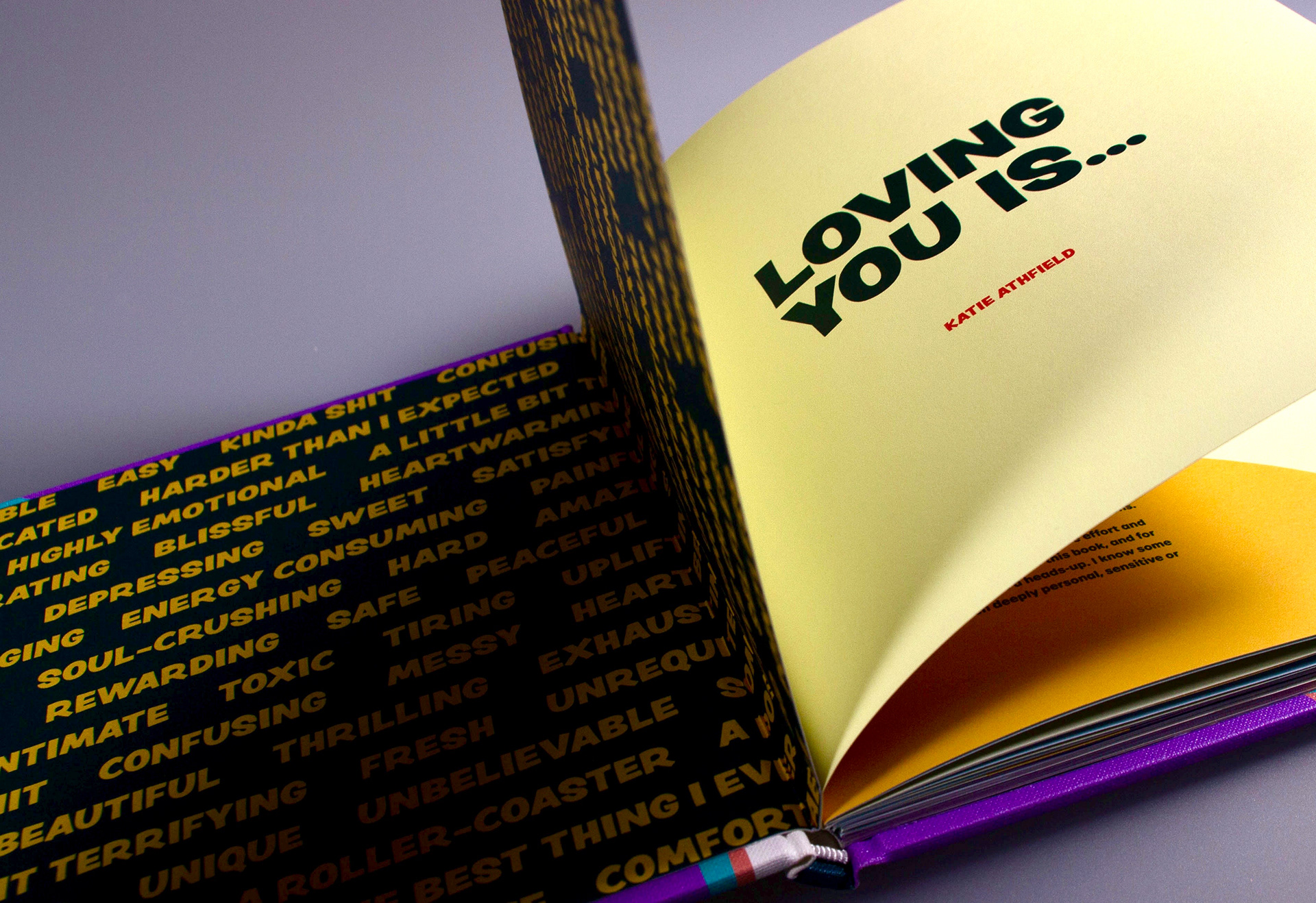
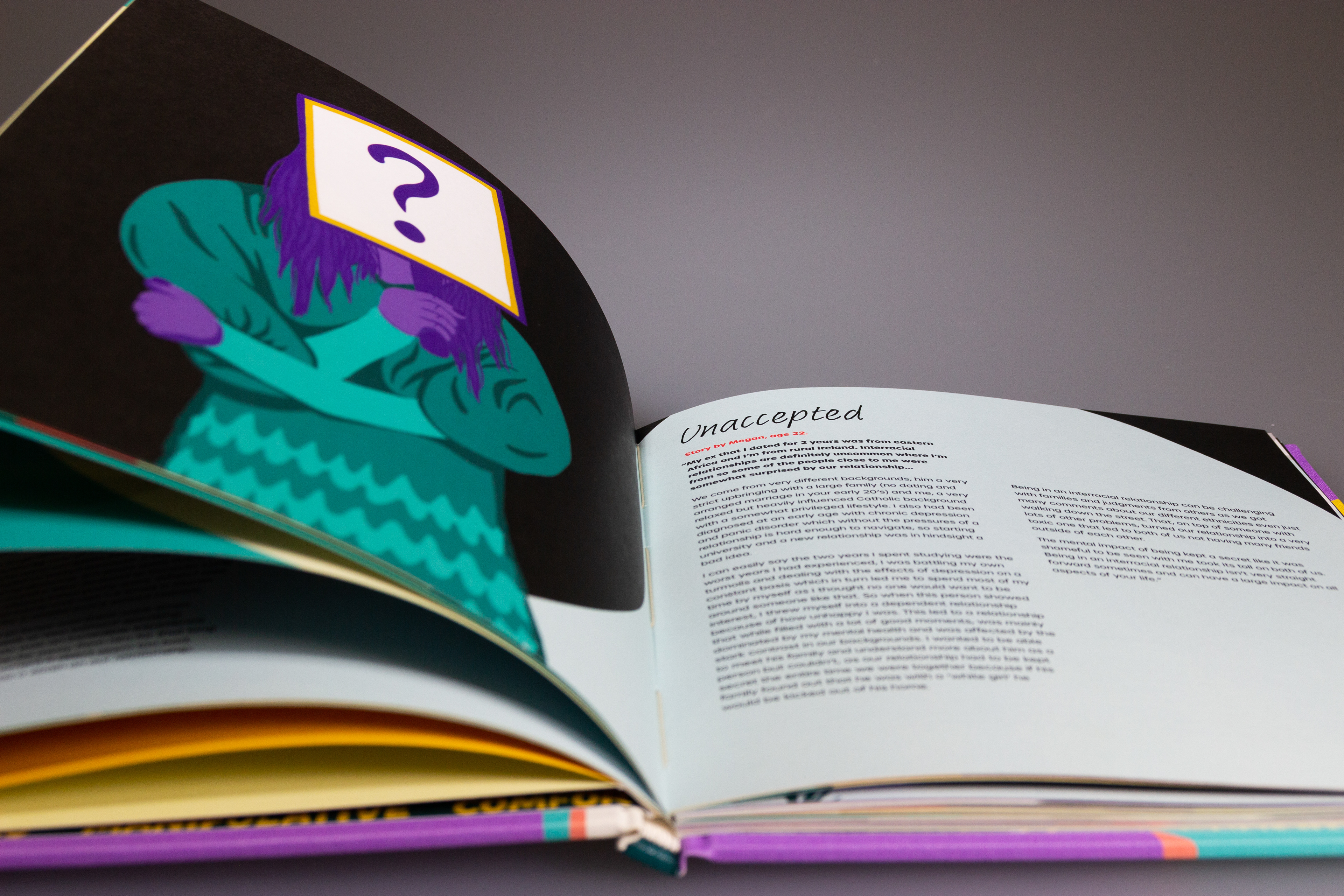
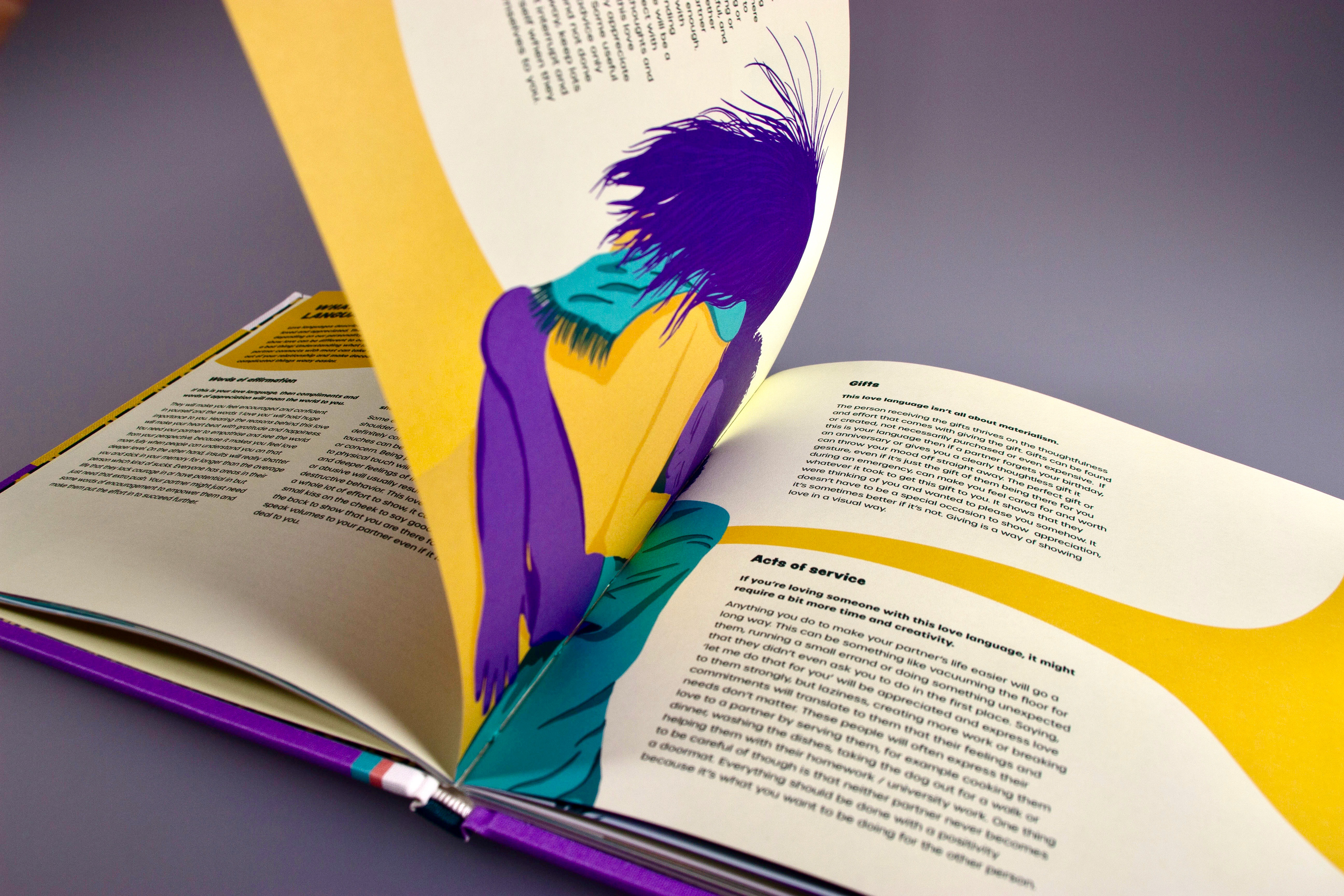
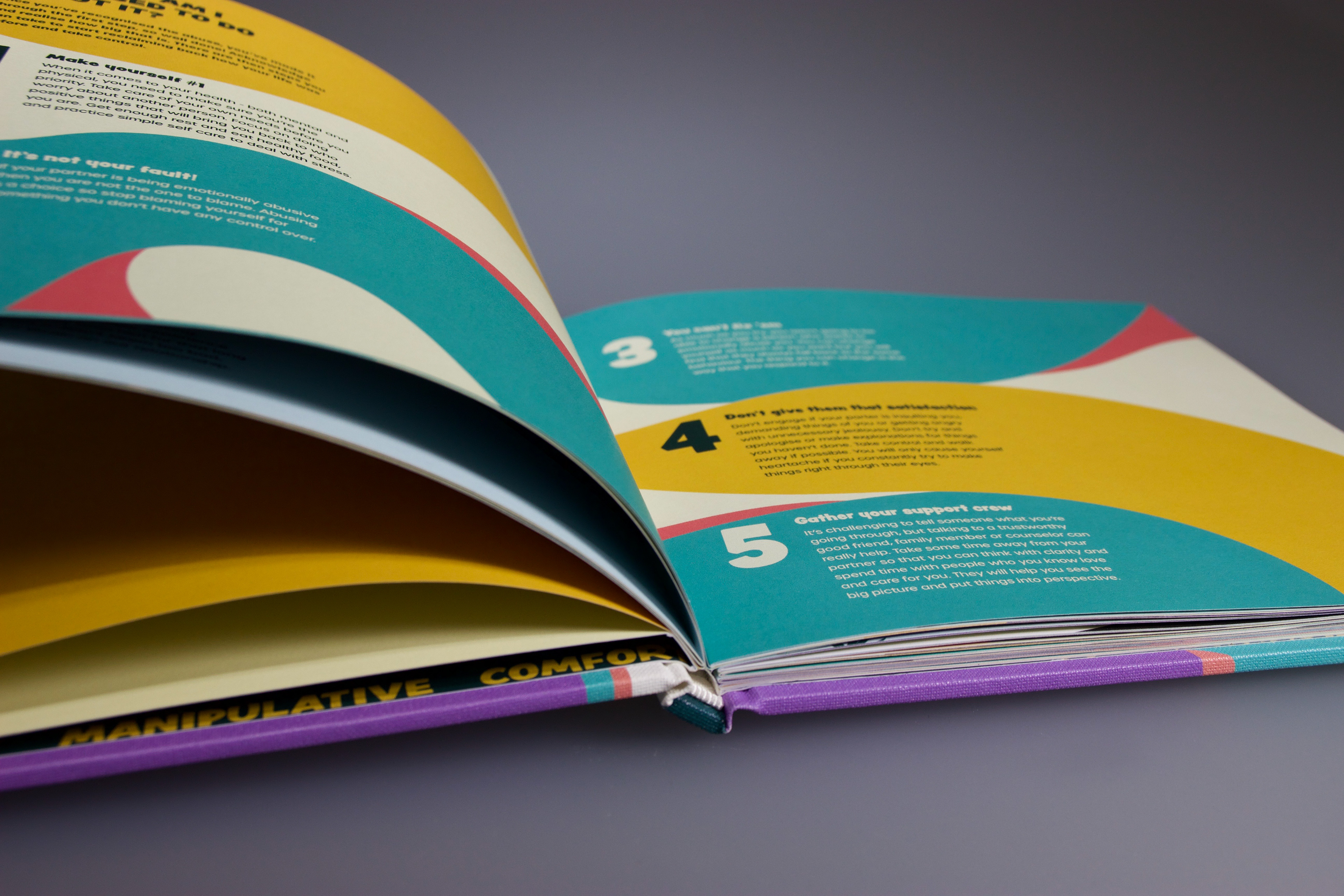
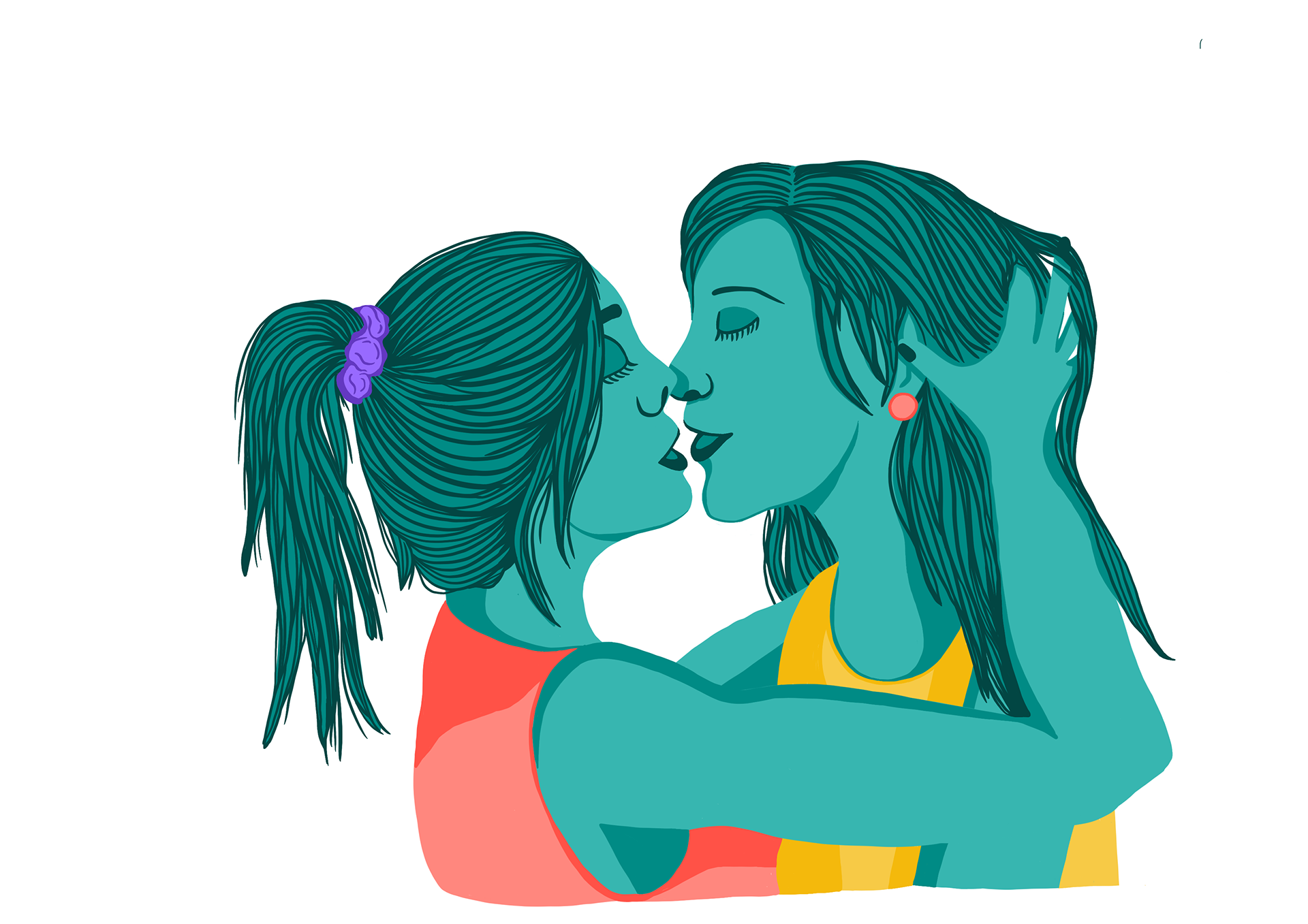
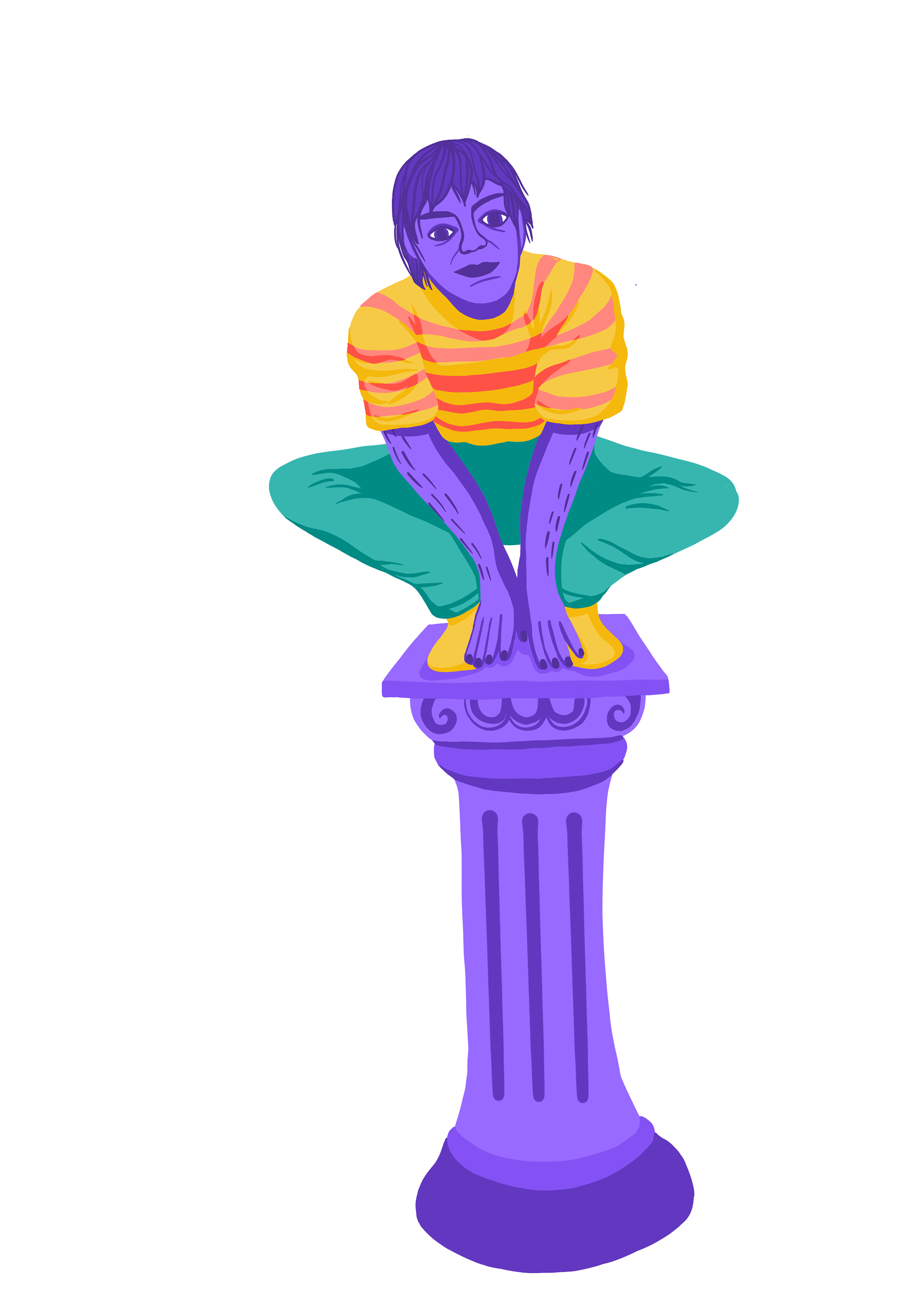
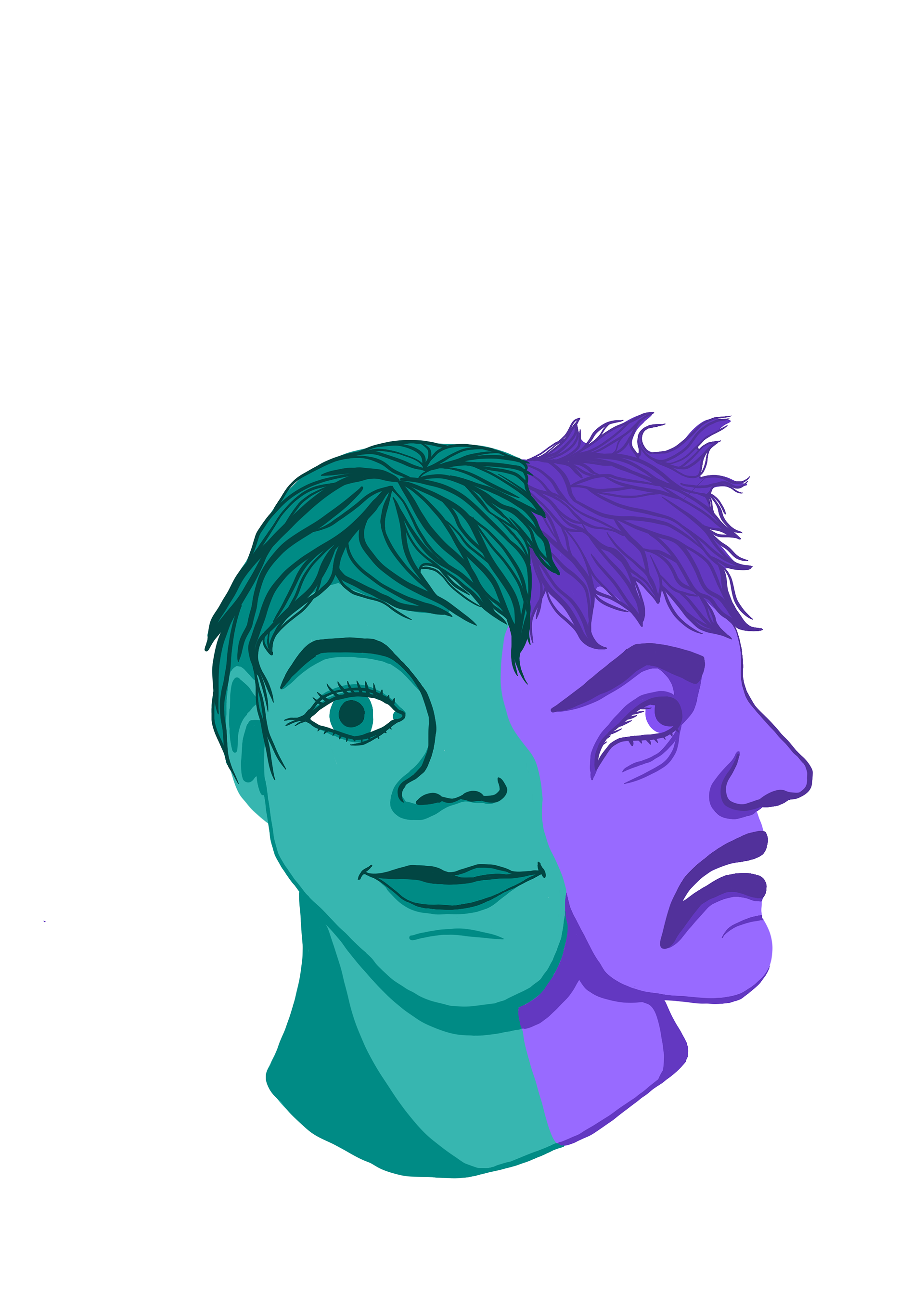
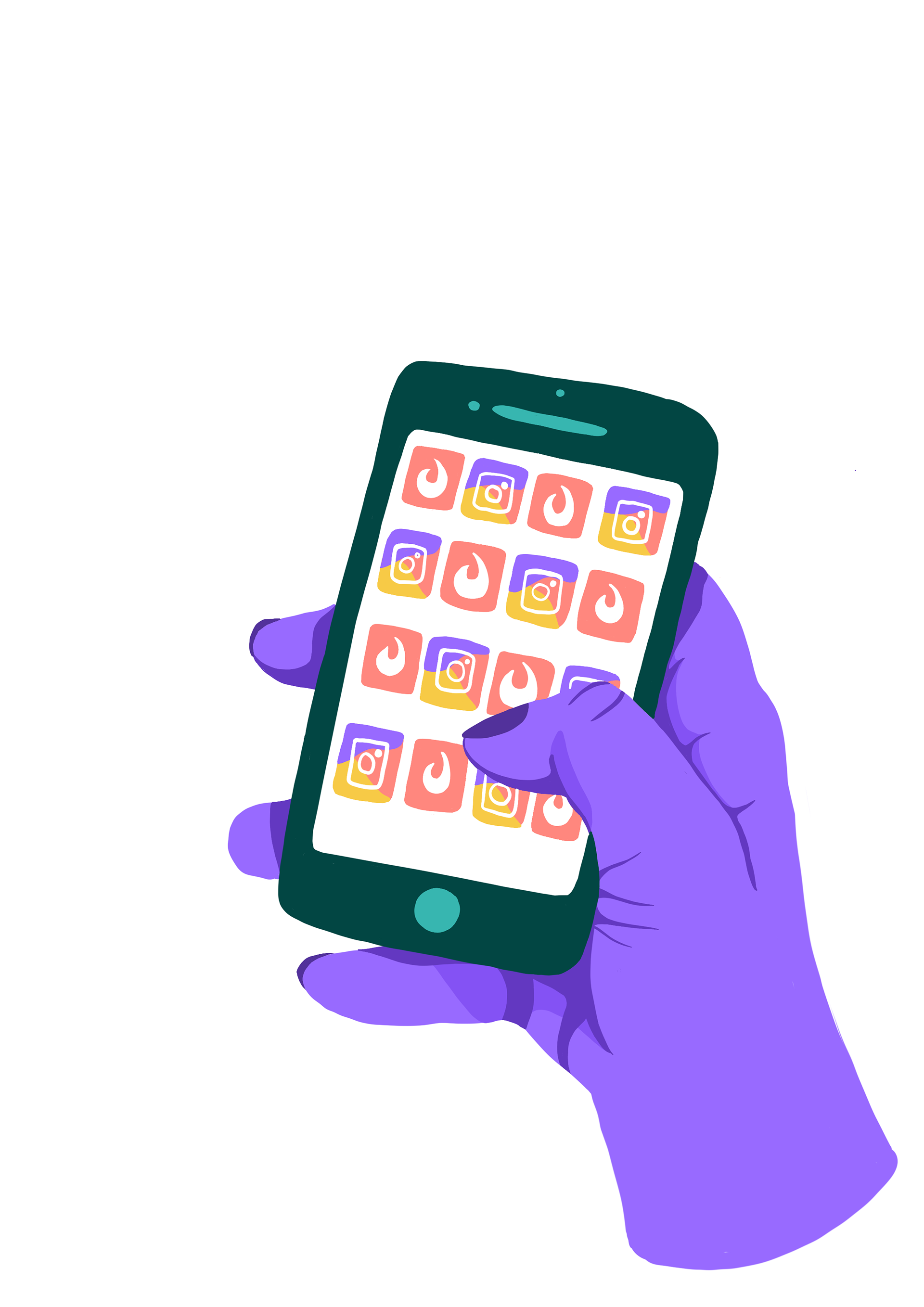

BOOK CONTENTS
A few spreads featured in 'Loving You Is'.
18cm x 18cm square pages
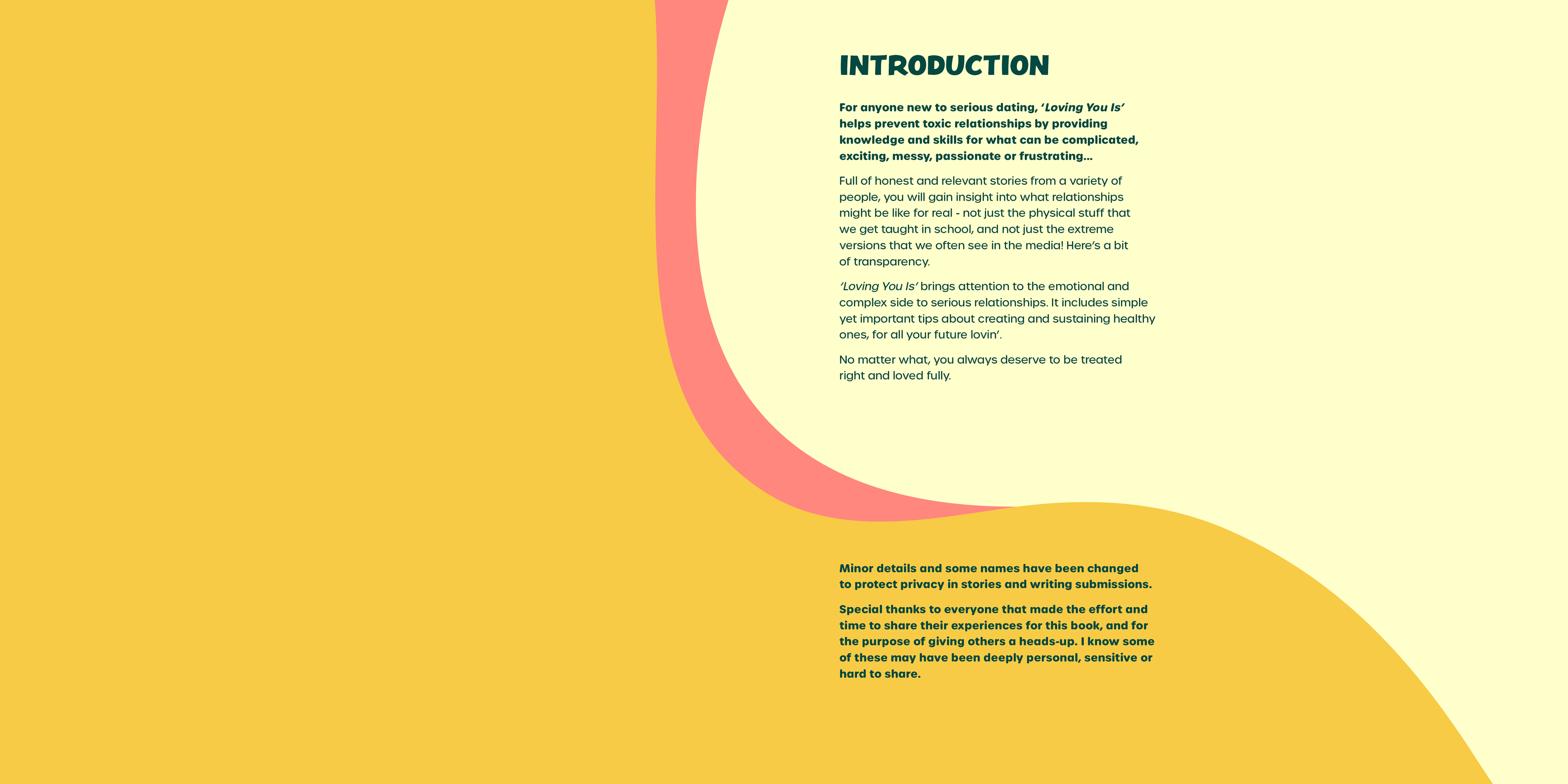
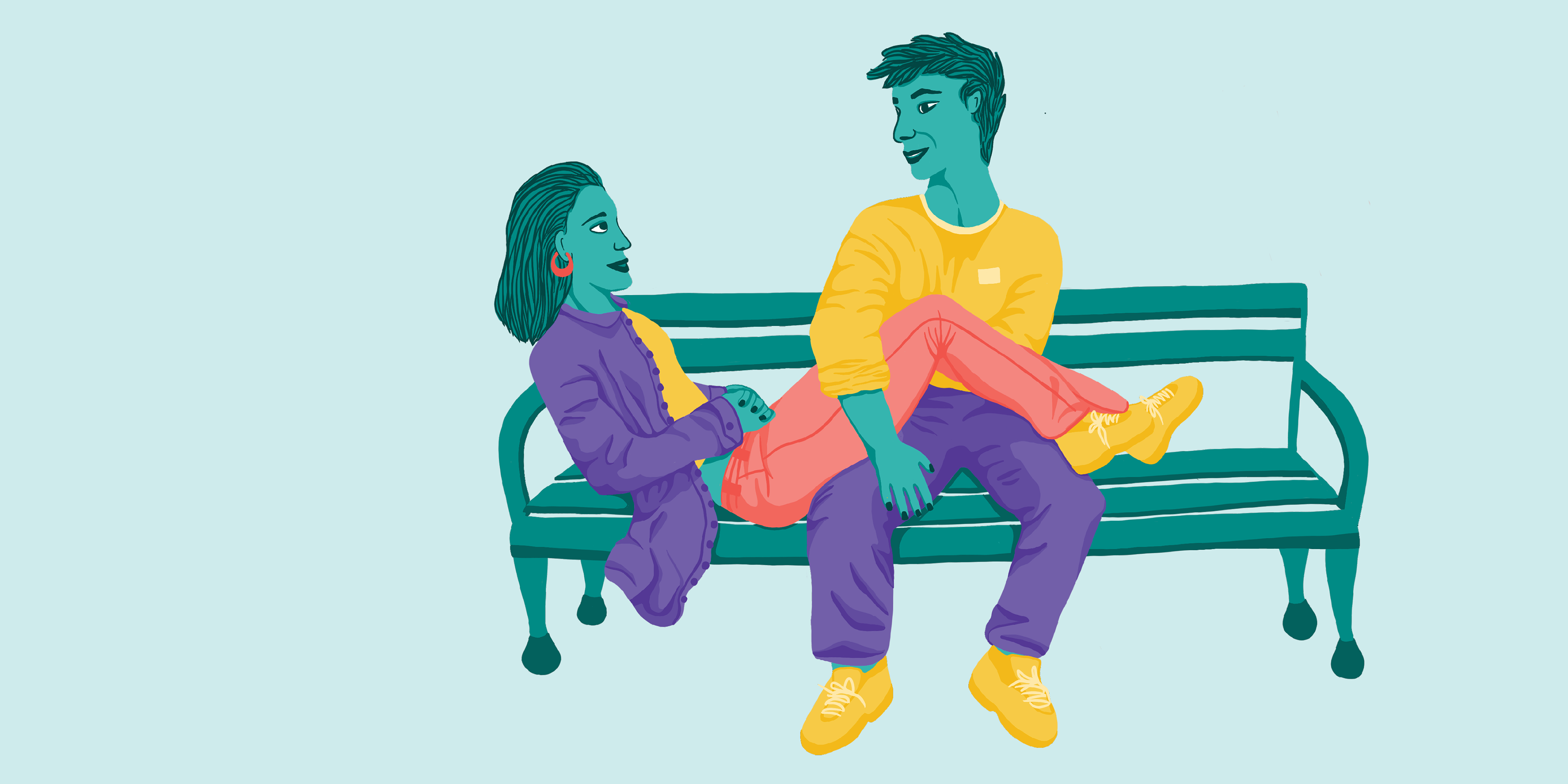
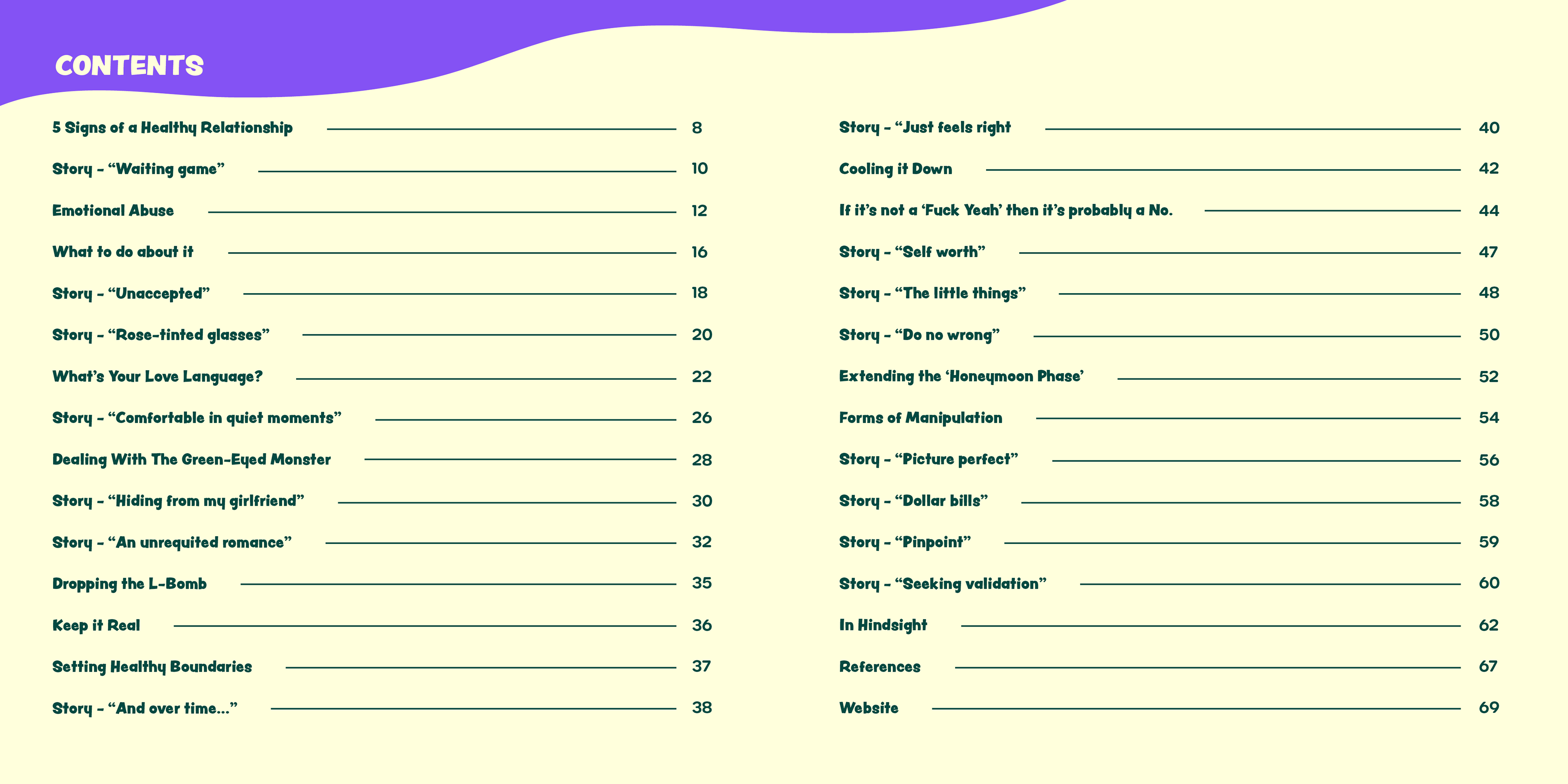
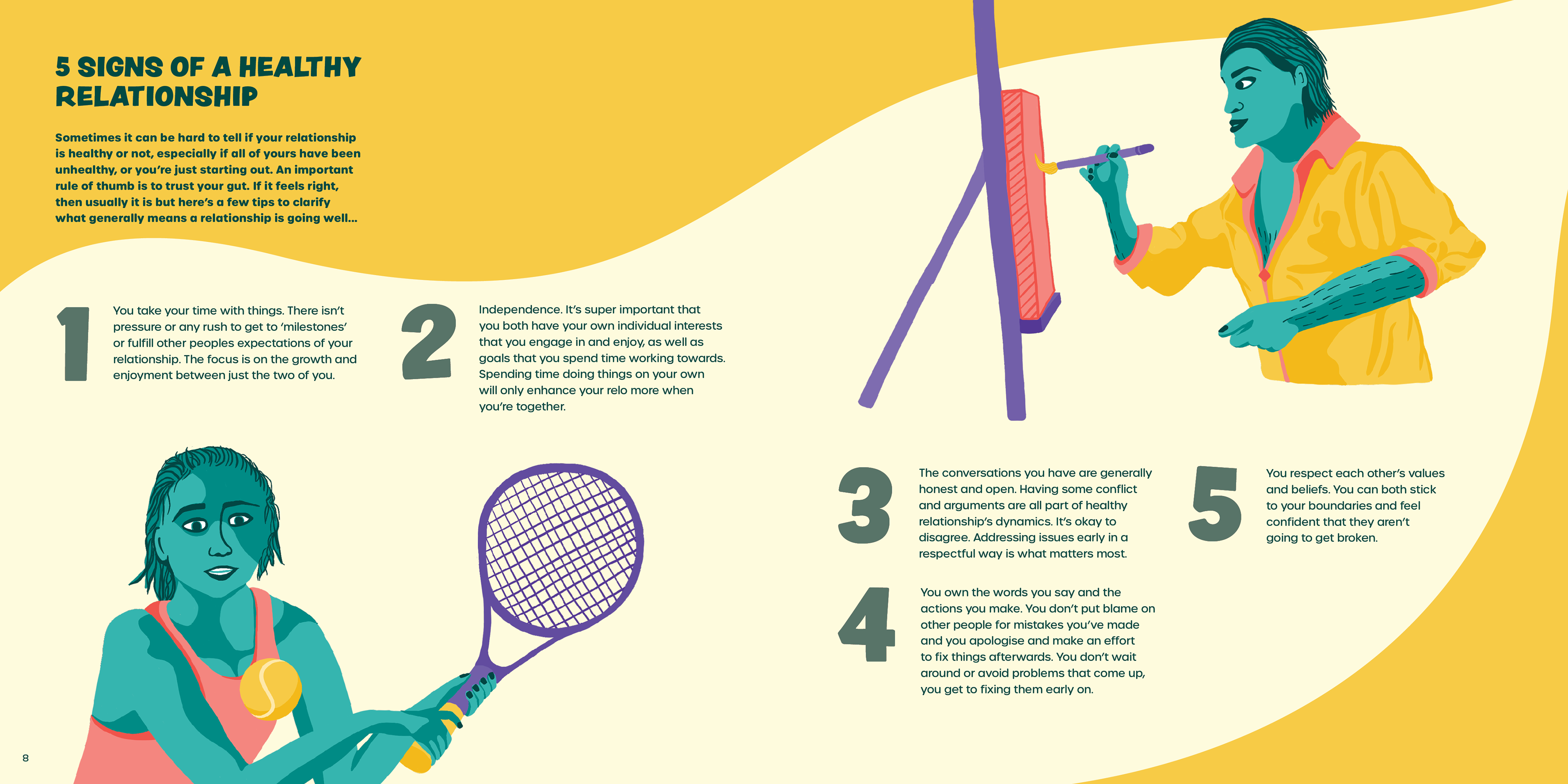
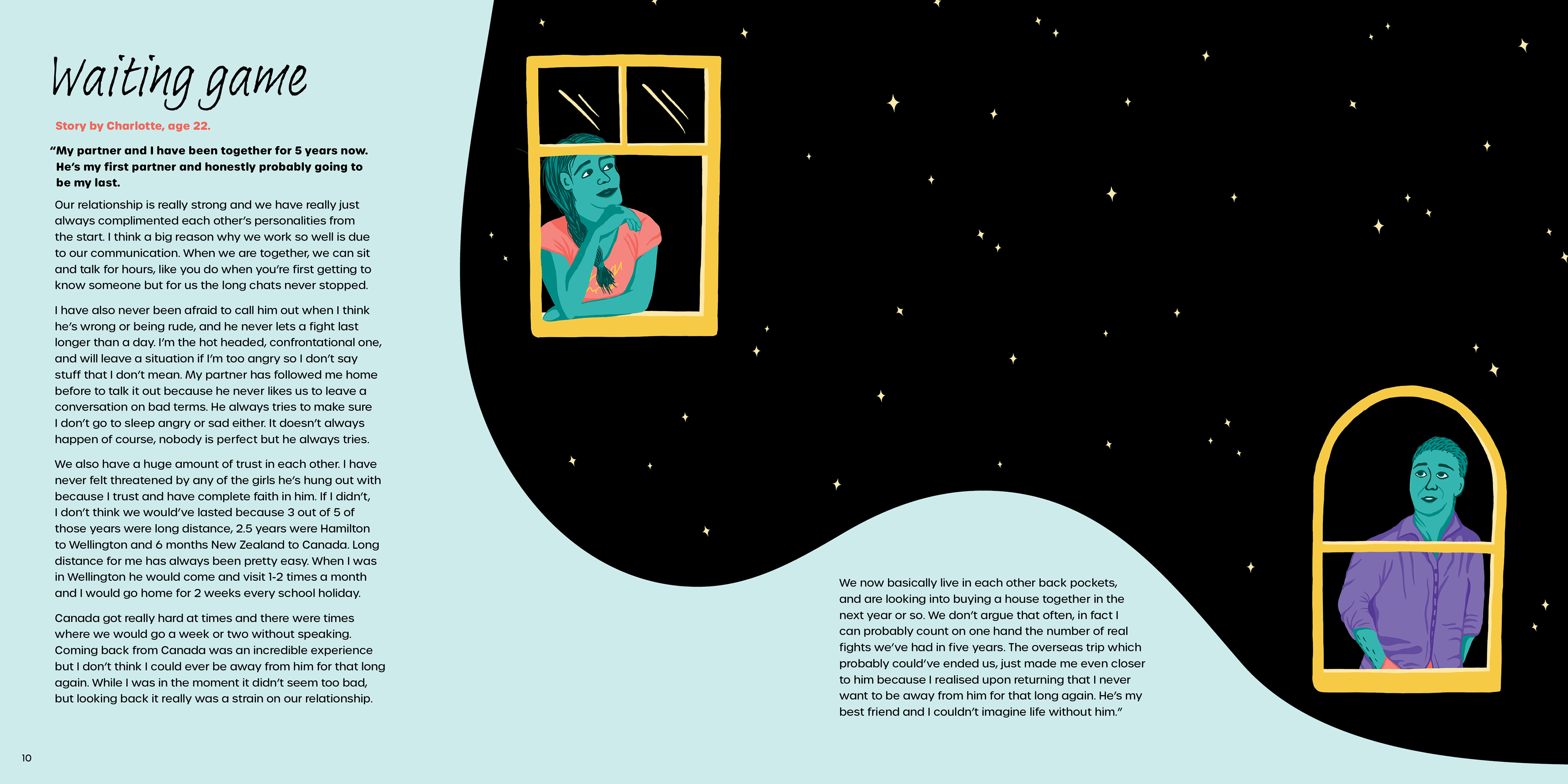
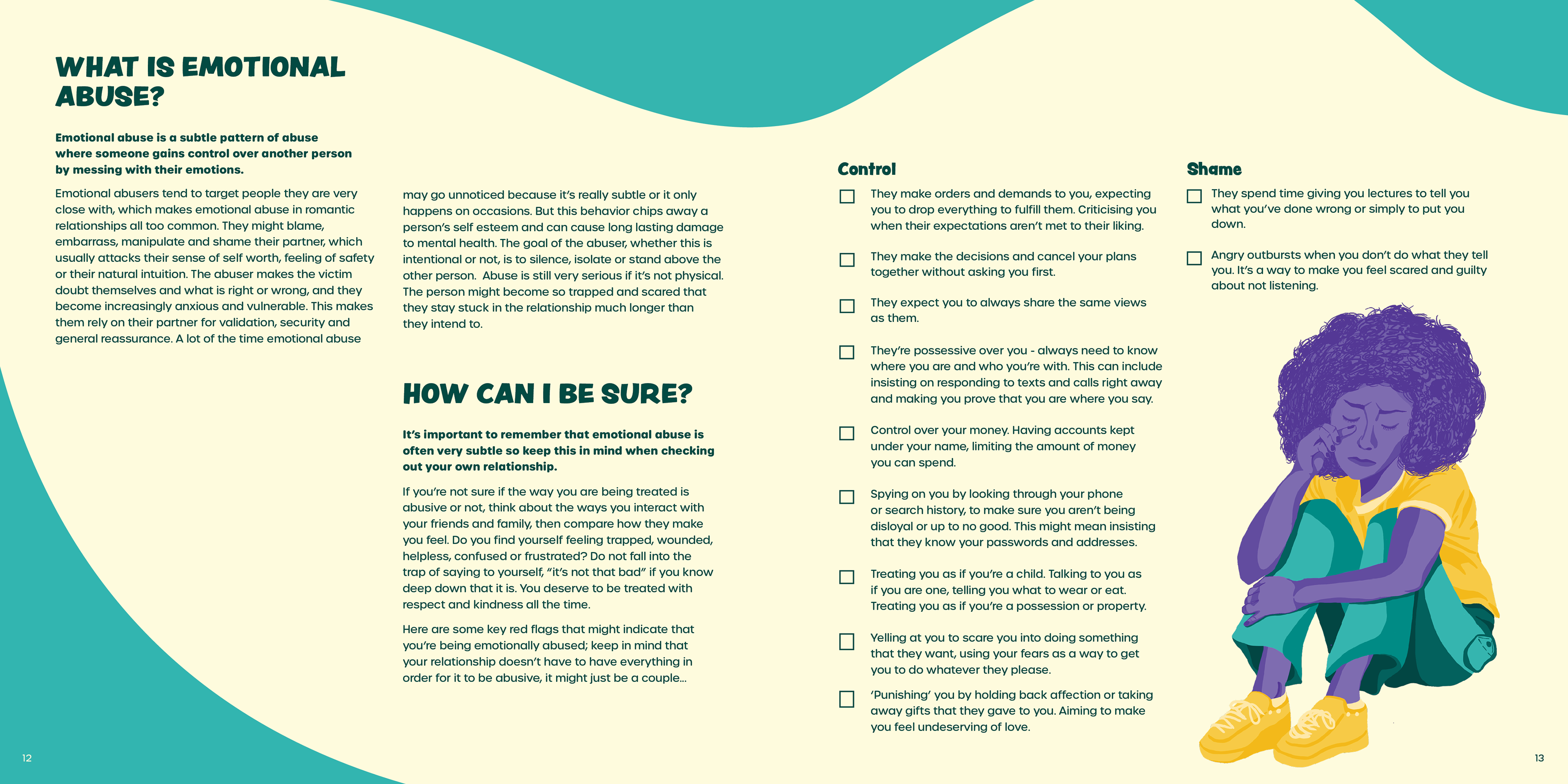
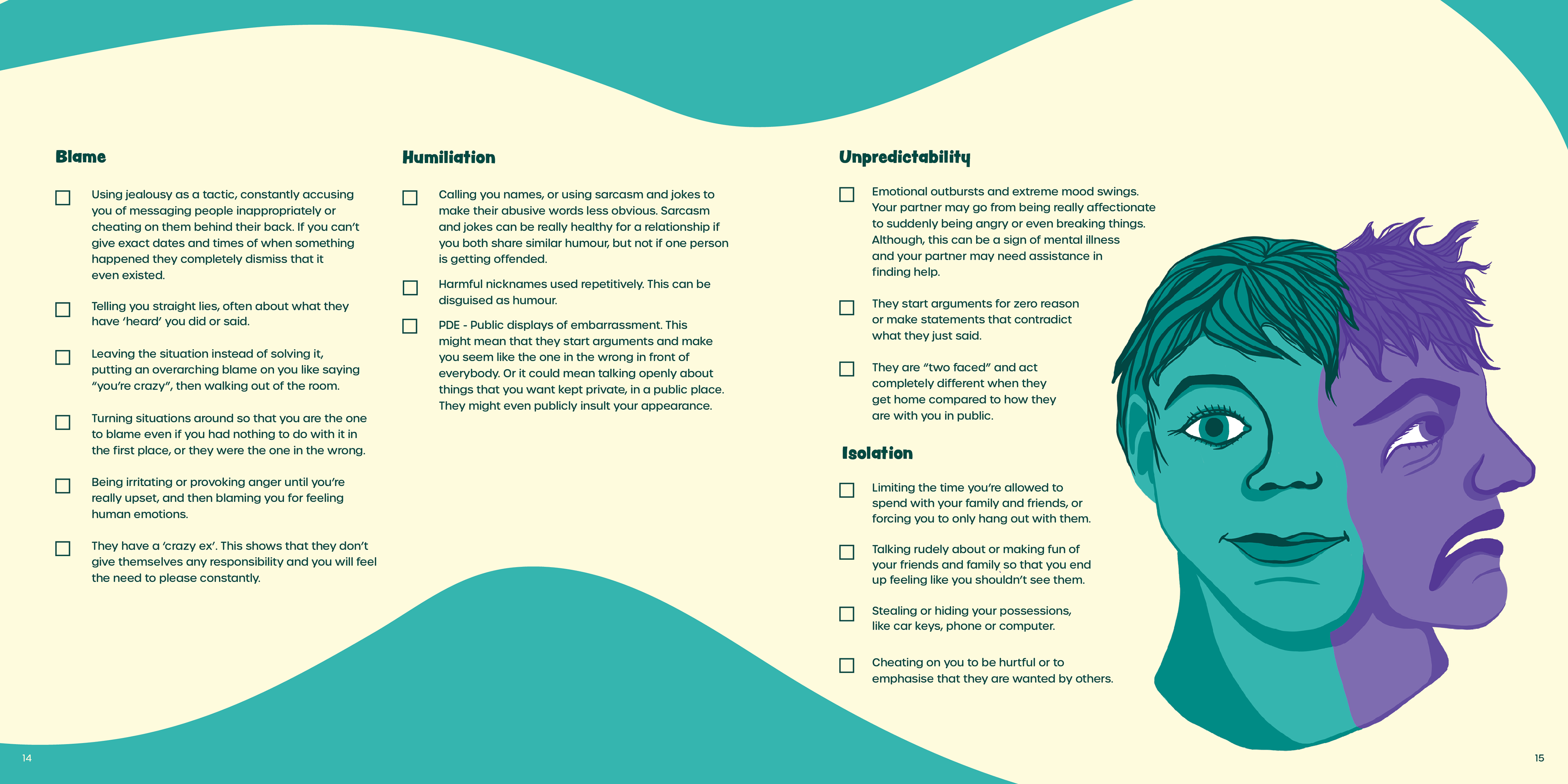
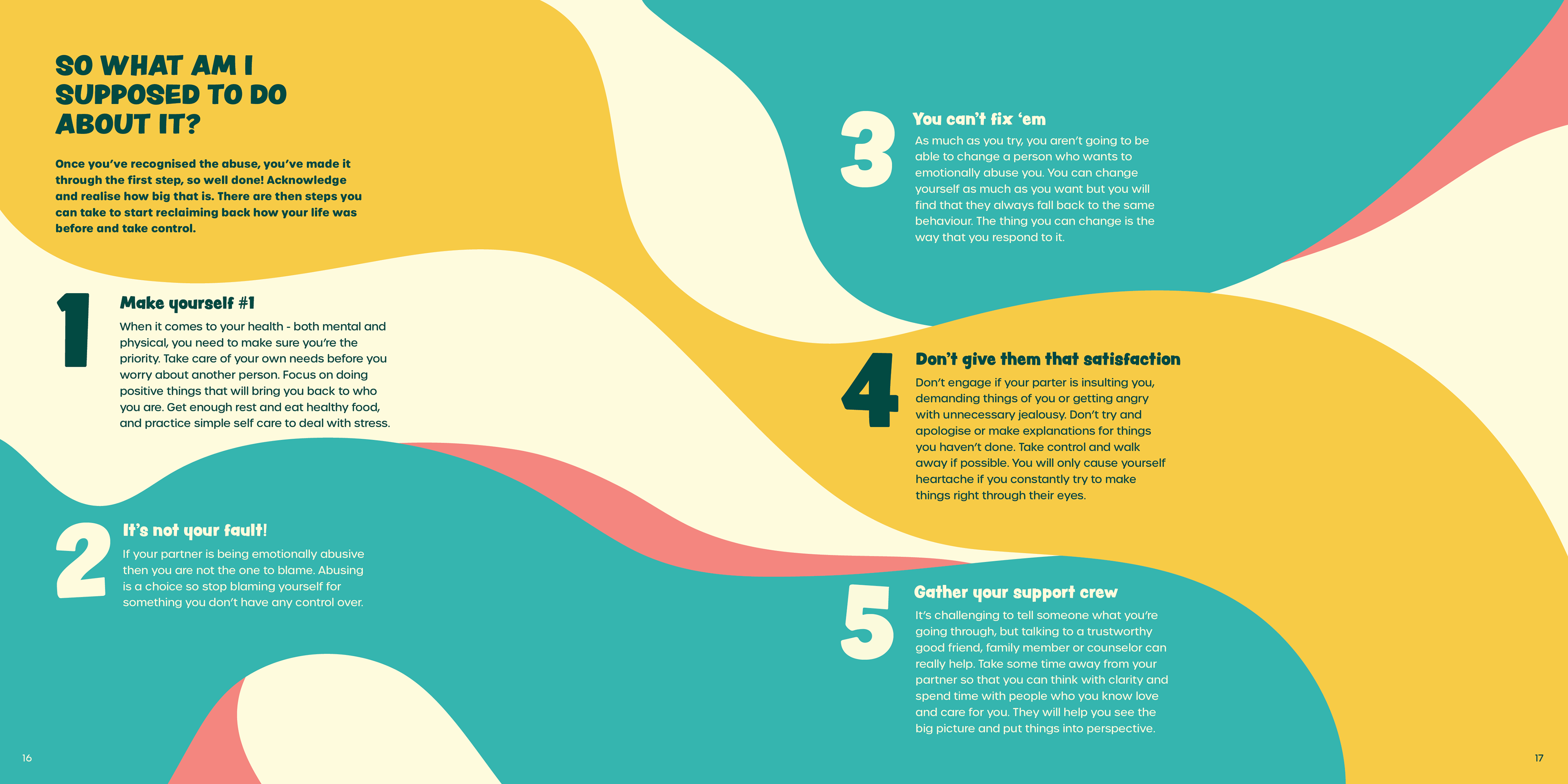
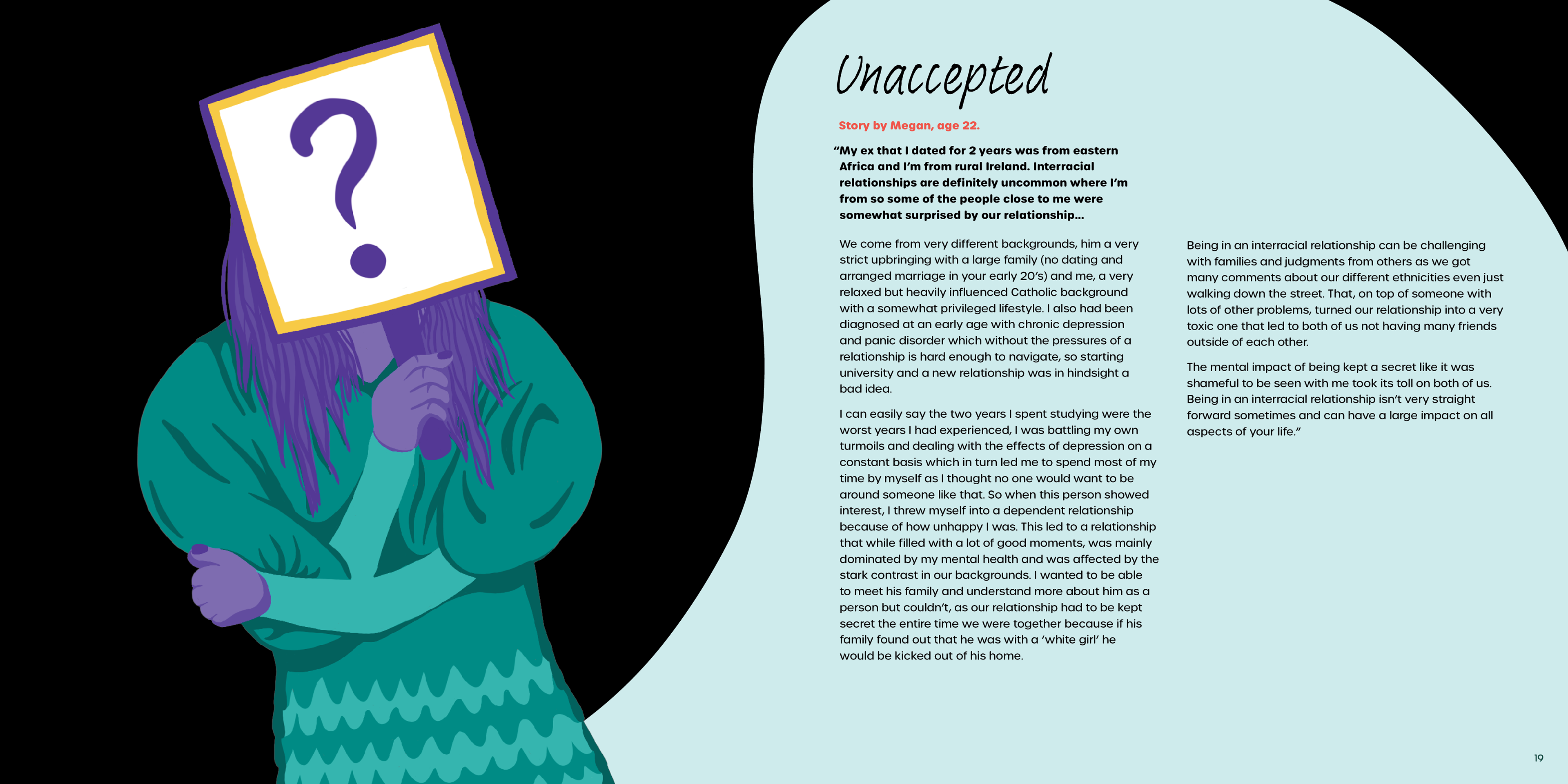

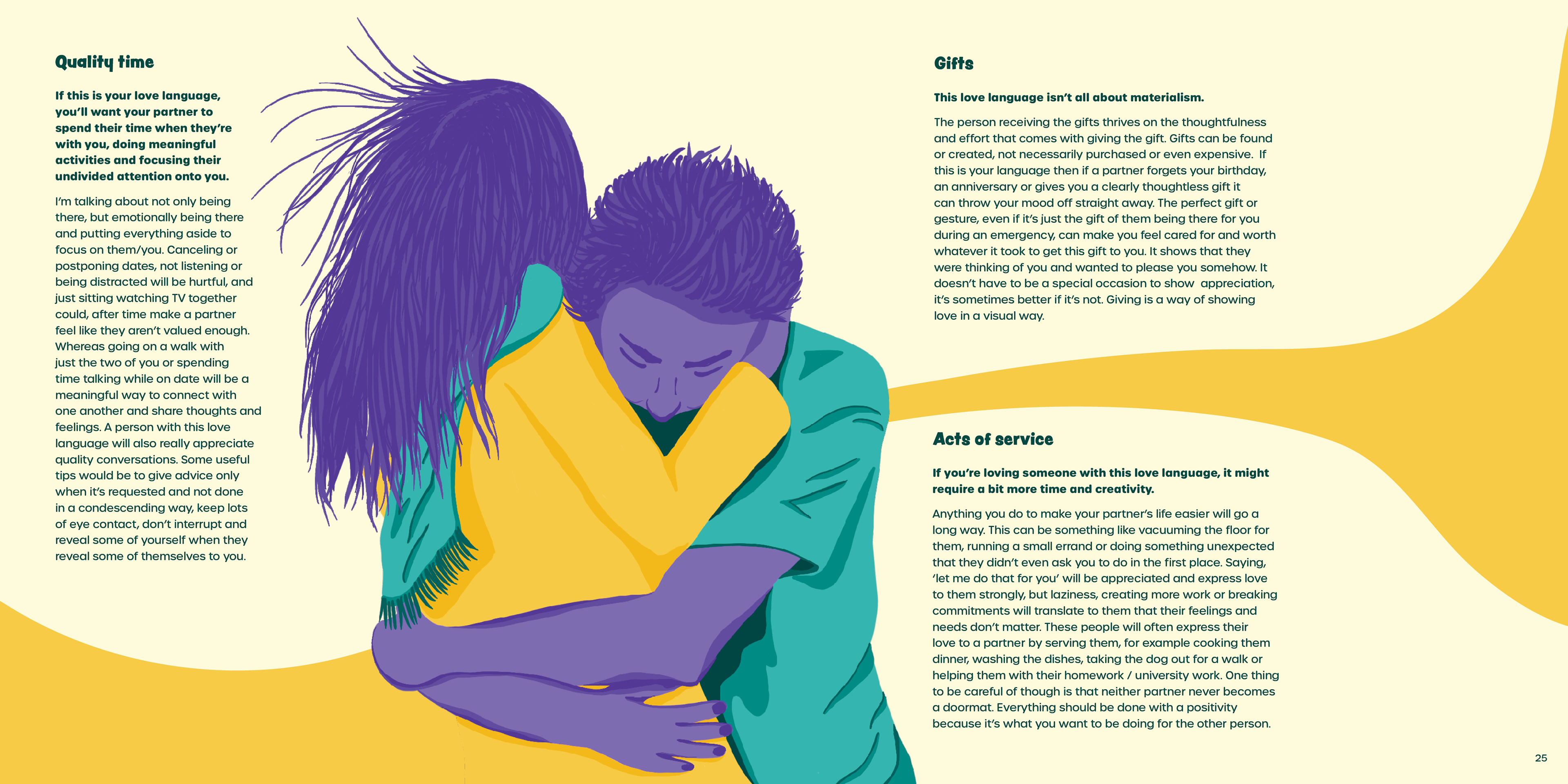

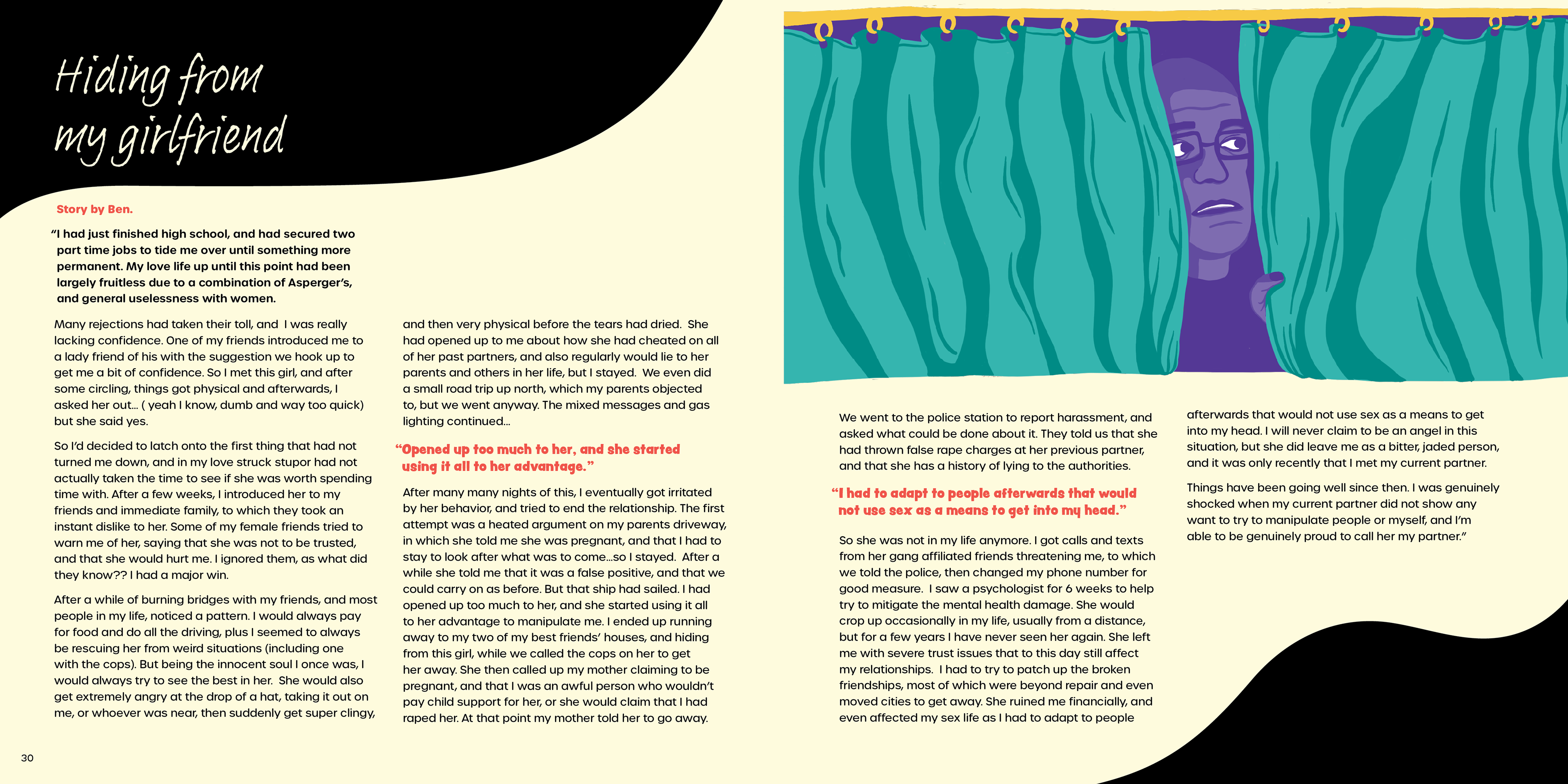
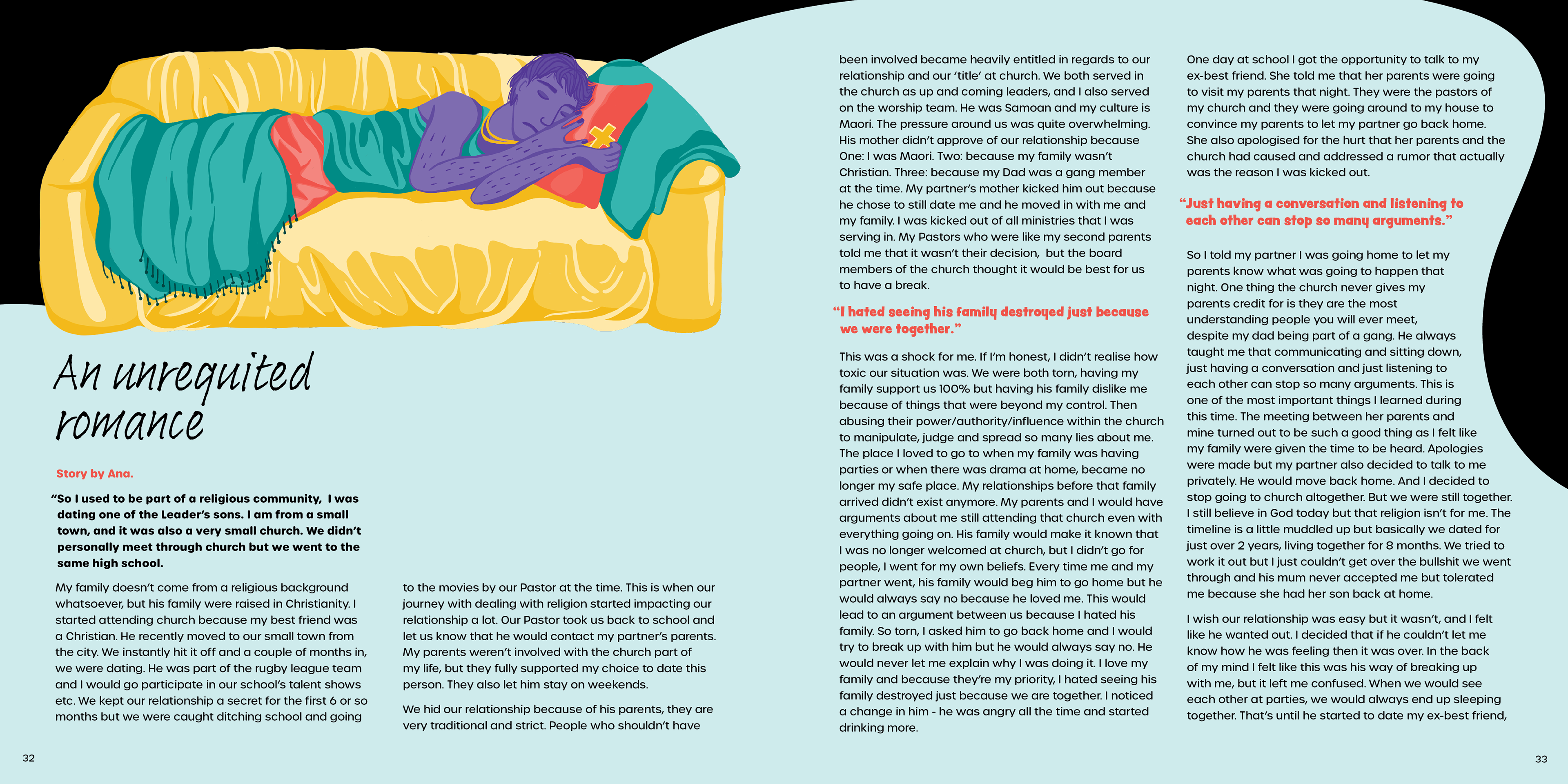
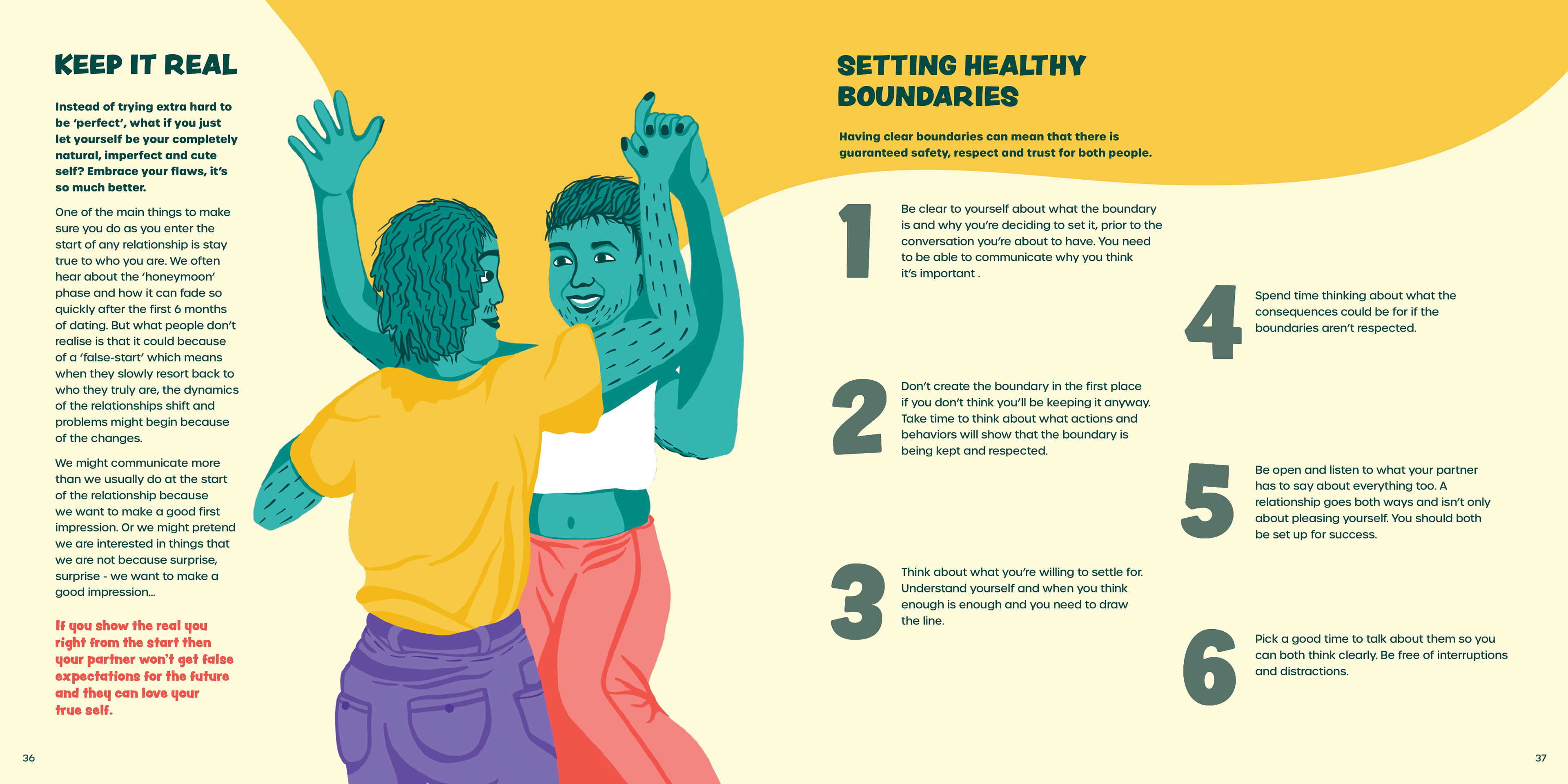
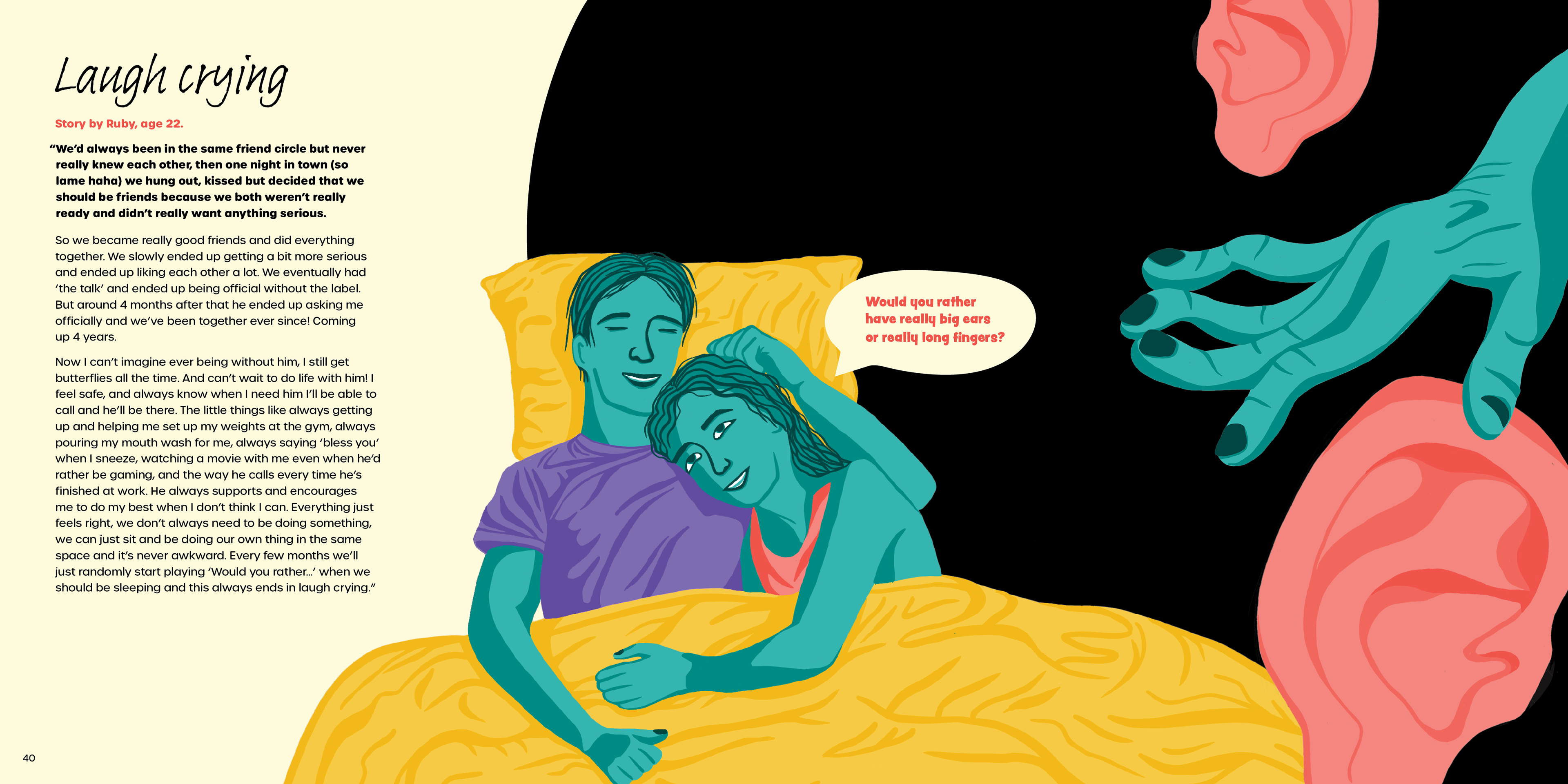
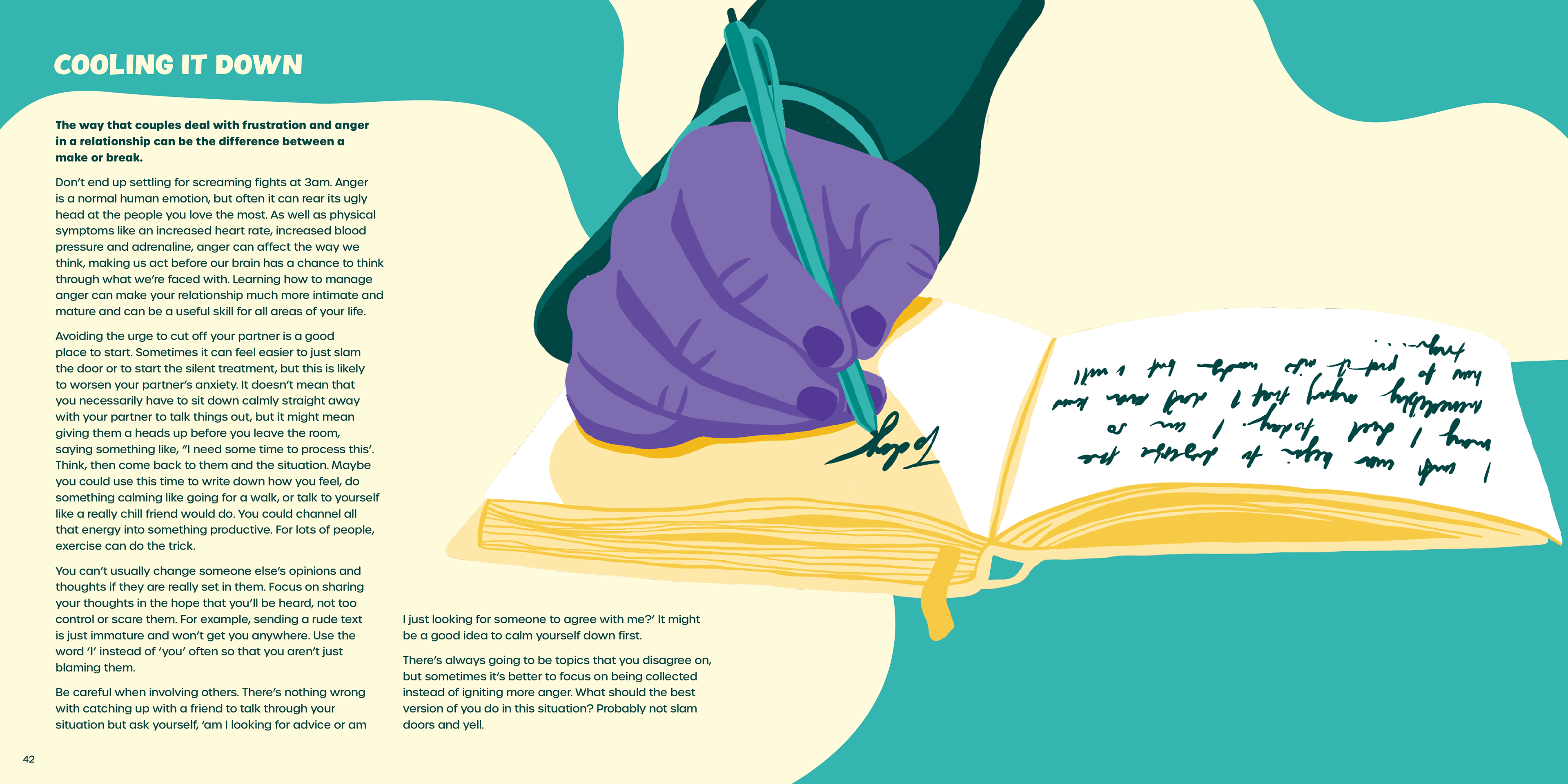
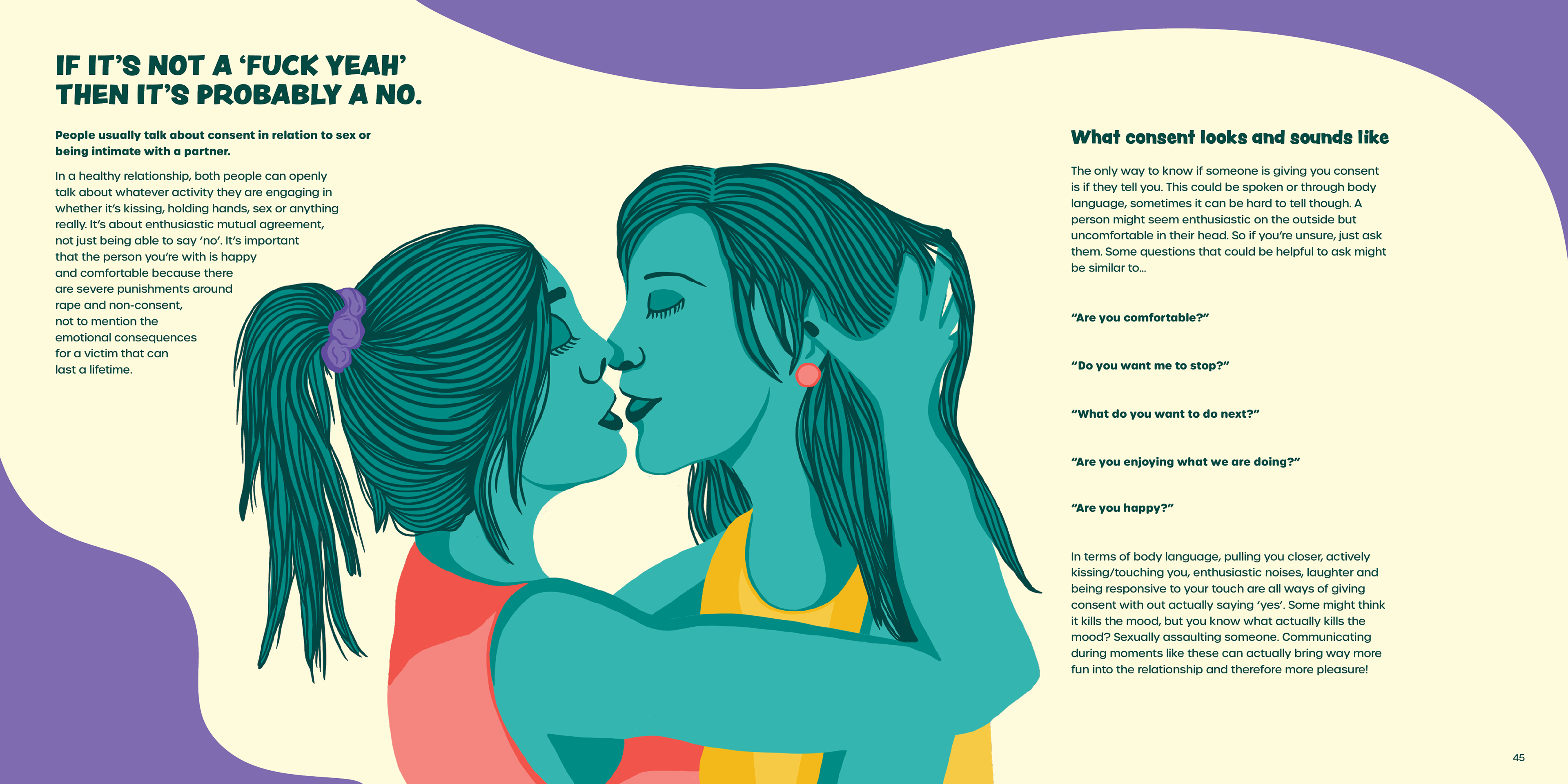
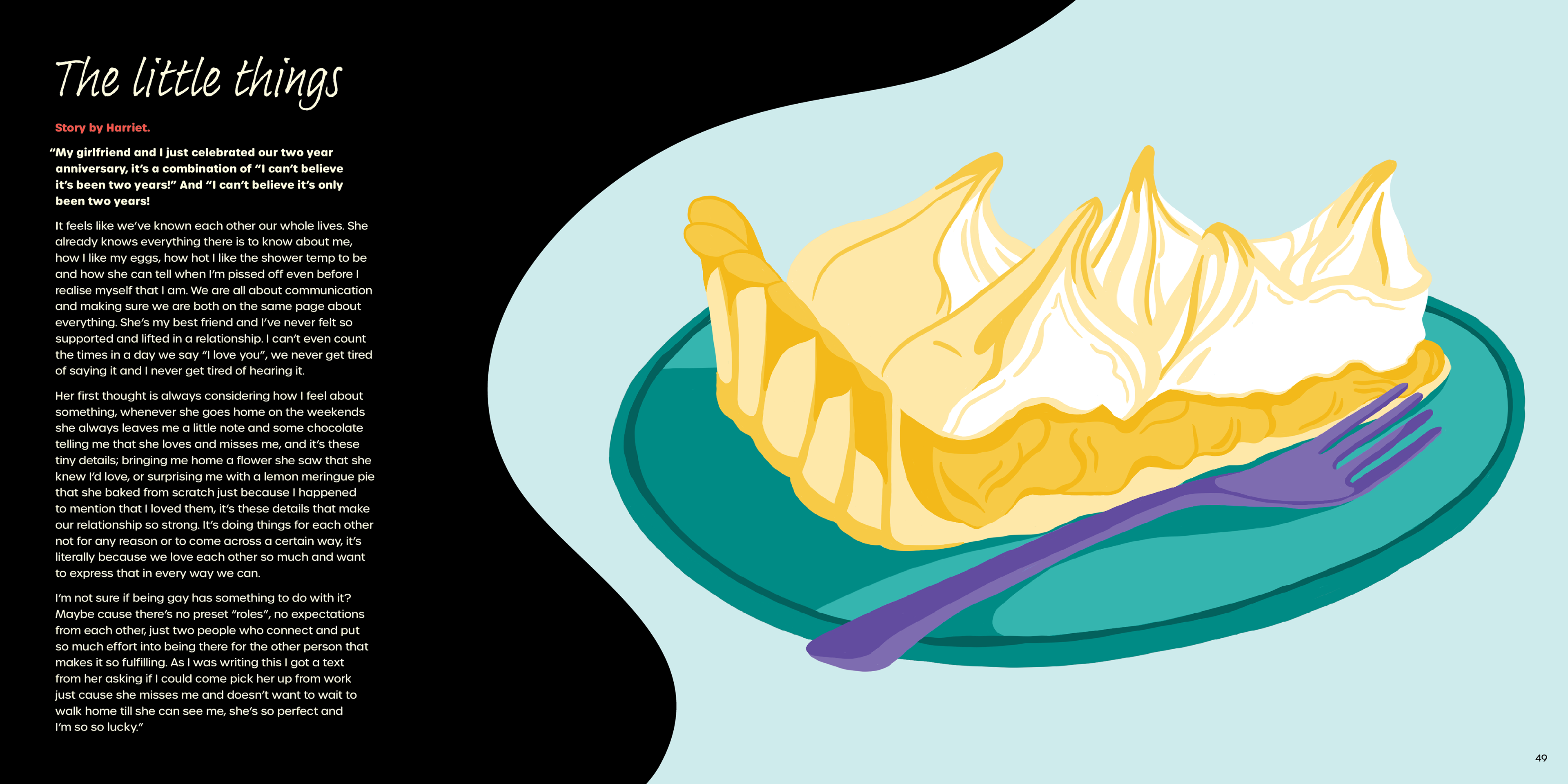


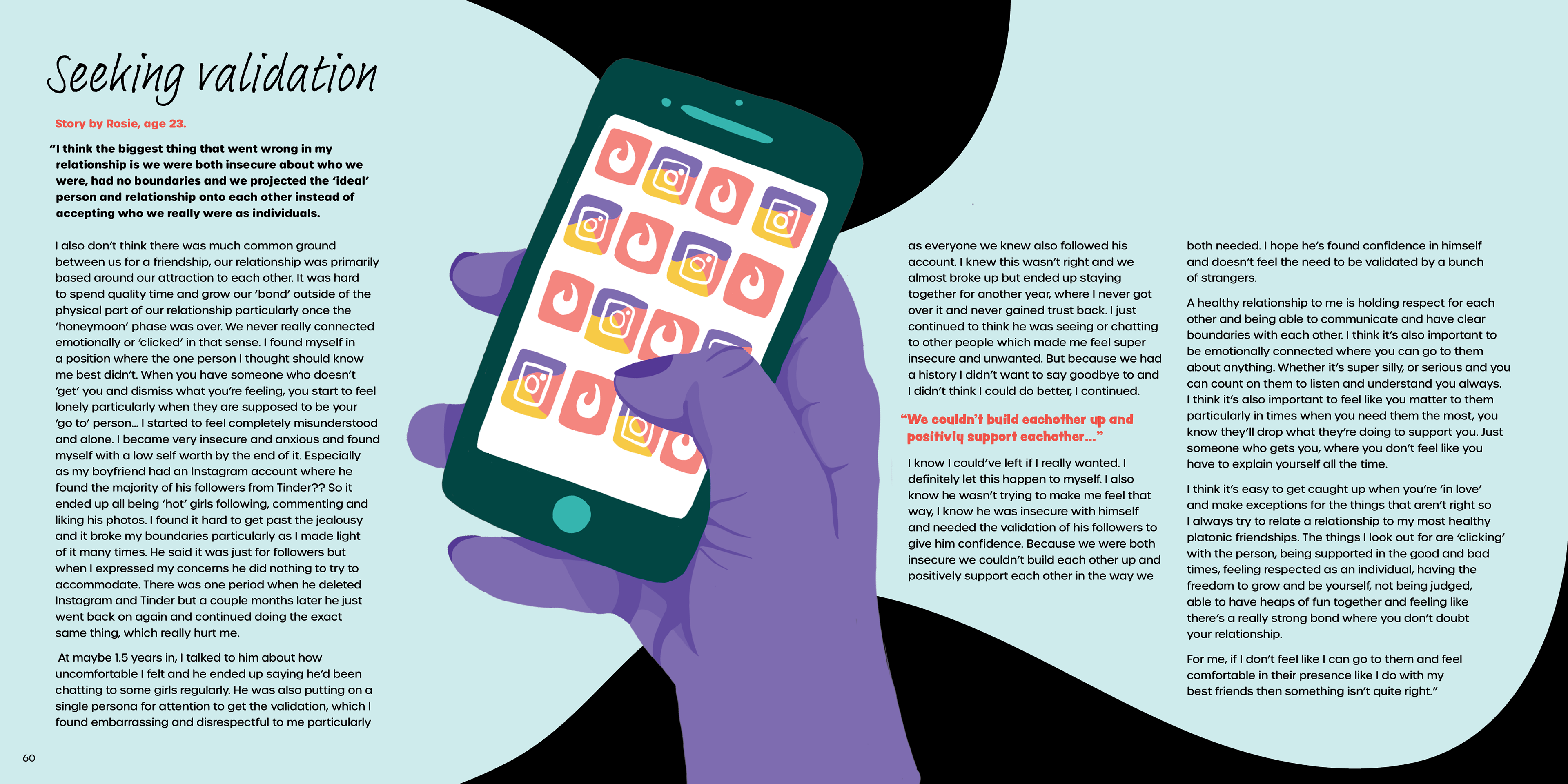
INSIGHT INTO MY PROJECT & DESIGN-THINKING
DEMOGRAPHIC
My project is aimed at anyone that hasn’t experienced a serious romantic relationship before. This is because through research I found that after being in one, people tend to have learned a large amount already, or at least think they have. These people are less likely to seek or accept advice. I want to implement learning as early as possible, to prevent negative scenarios. My demographic mainly consists of adolescents.
ennnnnnnCONTEXT
It has become normalised to experience a toxic romantic relationship, meaning people accept and make excuses for unhealthy behaviour.
Through research, and gaining a broader perspective by networking and surveying, it became clear; people don’t know how to love and respect their partners because they haven’t been educated. The emotional and complex aspects of mature romantic relationships aren’t taught with enough quality or quantity from a young age, which is a vital learning time when romantic curiosity is developing. Sexual education programmes typically focus on teaching ‘disaster prevention’, human anatomy and only briefly consent and abuse. ‘Hookup culture’ has been blown out of proportion where educators see this as the source of most problems, when in reality there are more major underlying issues in serious relationships. Sexual education is spoken through an educational voice censoring real life experiences and projecting outdated and warped perspectives. It doesn’t help that the media usually presents us with extreme versions of positive and negative relationships, causing society to idealise and view romance unrealistically.
PROCESSES helllllllllloeee& STRATEGIES
Sourcing content
I collected stories through discussion and Google Forms knowing this would be my project's foundation, first posting in Facebook’s ‘VicDeals’ because of its wide variety of genders, ages, backgrounds, sexualities, religions, ethnicities and views. To be inclusive, my final project includes a mixture of these. On Instagram I posted similarly. I curated a variety of positive and negative stories, to not completely scare users away from relationships but still be transparent. I found clear and relevant sources for the tip sections, and rewrote information more succinctly. Easy-going topics ‘lighten the load’ of the heavier topics.
Language
'Plain English' steers my book away from feeling like a school resource and more of a good read. I’ve subtly targeted adolescents through slang but not gone overboard as to be exclusive or get lost in translation. Eg. “ghosting” and “the honeymoon stage”. Users can relate to what they hear from their peers, and it’s instantly ‘cool’ to read because the user knows they’ll be learning about what people around them are saying.
Illustrations
My 'naive' illustration style, reduces the scariness of the serious ideas and makes them easier to grasp. Self portraiture became a useful tool to create the perfect reference to then manipulate shadows, body shape and add accessories to characters.
Email: Katieathfield@gmail.com





